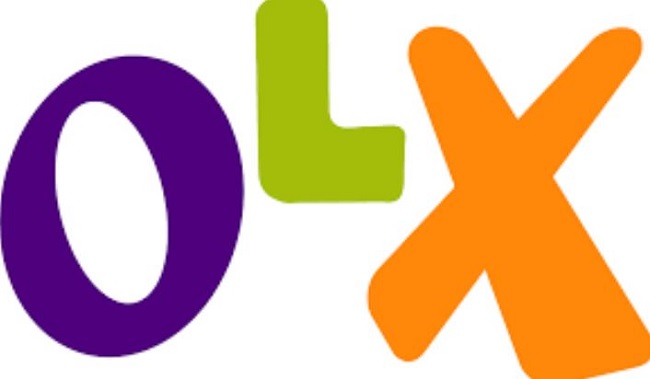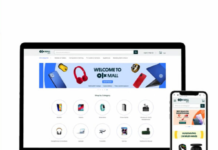
It’s an exciting time to be in Pakistan. We are seeing it in the numbers, in the growth we are getting, and in the content and monetisation, says Bilal Bajwa the Regional Head of OLX for Middle East, North Africa and Pakistan.
However, recent figures disclosed by OLX under a litigation revealed that it is actually bleeding – financially. According to the figures, in a bid to penetrate the online marketplace in the country, OLX has spent a whopping $21.6 million on advertisment and promotional activities but only started generating revenue around May 2017, that amounted to a relatively miniscule $600,000 by the year end.
In a conversation with Profit in March last year, the OLX regional head conceded that the buy-and-sell platform was not aiming to generate revenue as of then but was investing heavily on marketing in order to expand its footprint in the Pakistani market. Now he says that the online classified company has been successfully able to monetise and has been generating revenue since May last year.
According to him in the past one year OLX has grown from having absolutely no people on the ground in Pakistan, to now having around 60 people. Every single month during this period, OLX has beaten aggressive revenue targets that it set for itself on a holistic basis, he claims. The online platform attracts around 600,000 daily active users, with 20,000 unique listers, a number that has doubled in the past 24 months. However, figures disclosed under a litigation by the company show that OLX’s promotional expenses amounted to a staggering $3 million in 2016 alone. Assuming a similar amount of promotional expense incurred in 2017 even if one ignores all other expenses suggests an approximate yearly loss of $2.4 million.
Interestingly OLX’s business is based on a model different from the other players in the market, a factor that may be contributing towards a much slower move towards monetisation. The company is based on what is called a ‘horizontal’ business model in the classified industry, which means that the company deals in a number of different categories, rather than limiting itself to a particular niche. Currently there are 14 categories that are listed on the OLX site, ranging from cars to real estate, bikes, mobile phones and pets.
“The reason we like this model is that we want to be a part of the user’s journey throughout their life, whatever phase they are in. If you are a college student, you can buy a motorbike, if you have started working or excelling in your career, you buy a car, or when you move into a new city for a job you rent a house, and eventually when you are ready to buy a house, you can do that on OLX as well. So we want to be part of the entire journey of the user. The other benefit we get is users coming in and stumbling on items. You may come for a phone, but when you are there you may realise that a different phone is a lot better and cheaper. Or you may come to buy a car and find an apartment that is on rent. That is the benefit we get and that is why the scale we have is higher than any other player in one category,” explains Bilal Bajwa.

Other players that are operating on the ‘vertical’ model and deal in a particular niche, are better able to specialise and do much better in terms of revenue generation and monetisation. “Typically verticals go deeper than what a horizontal classfied does. Since the business model is more specialised, they don’t only offer listings but also offer research, reviews, videos and an opportunity to compare different products. These services are generally not available in the horizontal structure,” explains PakWheels CEO Raza Saeed, adding, that OLX’s revenue after such a heavy investment is half of what PakWheels revenue is and less than ten times the revenue of Zameen – an online real estate classified, both of which are operating on the vertical model.
However, the problem with OLX is not only that it is venturing into too many categories, but that its revenue model is solely based on advertisement. In emerging countries a small number of users pay for the ads and the revenue from advertising is low. Hence, classified businesses in such regions are moving towards a transaction-based model, through which they not only provide consumers a listing service but also help them complete the transaction.
In Pakistan, Zameen is partnering with real estate agents and developers and using its marketing muscle to help consumers buy and sell real estate, for which it charges a percentage of the transaction amount as a fee which sometimes amount to around Rs200,000 to Rs500,000 per transaction. Hence, monetisation becomes a lot easier this way. Similarly, Pakwheels, which has traditionally operated on the advertisement model, recently launched a transaction model based pilot project, through which it hopes to further increase its revenues in the future. With no such plans in sight for OLX, chances are that it may further lose to competition in the future.

However, in spite of everything, Bilal Bajwa insists that OLX’s current business model is the right way to go forward. “I don’t think there is anyone else in Pakistan that is comparable to us in size. Our android app came out less than two years ago and it has already got five million downloads. As far as the monetisation and the profitability is concerned, we follow our global practices, where we feel that there is a time to invest in the market and then there is a time for profitability. Our initial revenue numbers have exceeded our expectation.
“What we have seen is that there is a willingness in the market to pay when the product is good, and in fact in some cases we have tried not to push too aggressively on monetisation, because we want to make sure that we deliver the right quality to the people,” he says, adding, the company is aiming to be profitable in about 24 months as it will take some time to cover the huge investment in marketing.
“Mobile, electronics and cars are the fastest growing categories for OLX at present but our biggest areas of focus for the future are cars and real estate,” said he, signaling an intent to give stiff competition to Zameen and PakWheels in the years to come.

OLX vs PakWheels
Another recent development that suggests OLX might be feeling the heat is a complaint filed by the company with the Competition Commission of Pakistan (CCP), accusing PakWheels of using copyrighted watermarked ad images containing the ‘OLX’ logo to further its brand, contacting its customers by using their contact detail posted on OLX’s website and accessing its website’s servers through the use of automated means, for the purpose of extracting, copying and reproducing data.

According to Bilal Bajwa, the complaint is completely justified. “No other company in Pakistan is investing in marketing as extensively as OLX. When we are making this effort and we are bringing in users after spending millions of dollars we have a right to protect the benefits we reap from it. It is not ethical for another company to try to benefit through us without putting in a similar kind of an effort,” he contends.
“There are laws which are present in other mature markets around such cyber scamming but sometimes it’s hard for us to find legal protection in Pakistan. Some websites contact our users quite often and that creates a bad customer experience. If you are posting a mobile ad online, your expectation is that somebody will call you to buy, and not to convince you to put an ad on their site as well,” he comments without taking name of any specific website.

PakWheels CEO Raza Saeed, however, feels that the case is a sign of desperation on the part of OLX as it’s lagging behind in revenue generation after investing heavily on marketing. “OLX claims that PakWheels is using its pictures and copyrighted logo to make the customers think that we are related to OLX, which is absurd. No competing company would ever like to associate itself with another as this will be bad for its own brand equity. Our users often copy-paste advertisements from one website to another and in such a case the company cannot be held liable,” he argues, adding, the general practice in case of content copying is to serve a notice for its removal to the site committing the violation, however no such notice was received from OLX.
Interestingly, similar kind of ads with OLX’s logo over Pakwheels watermarked logo are also present on the OLX website, which can give the company a hard time in pleading its case.
OLX Regional Head Bilal Bajwa refused to comment in detail on the case, which is still sub judice. However, PakWheels CEO Raza Saeed claimed that, OLX after the first case hearing offered an out of court settlement to PakWheels, which the company refused. “It is evident from this that OLX knows that it cannot win in court,” he commented.
Responding to this PakWheels claim, while conceding that OLX had offered the former an out of court settlement, the OLX marketing manager said, it was not an open-ended offer, the proviso being that PakWheels shall pay a penalty as well as publicly apologise for the infringement. Since that did not transpire, we shall continue to seek relief through the court.







Now Olx is feeling competition heat, as various new players have entered in the market. Similarly online motorcycle website ebike.pk has entered and has providing good videos reviews and information about motorcycles.
If you are going for best contents like me, just pay a quick visit this web site
everyday because it gives feature contents, thanks
Every weekend i used to pay a quick visit this site, as i want
enjoyment, as this this web page conations actually nice funny
data too.
Comments are closed.